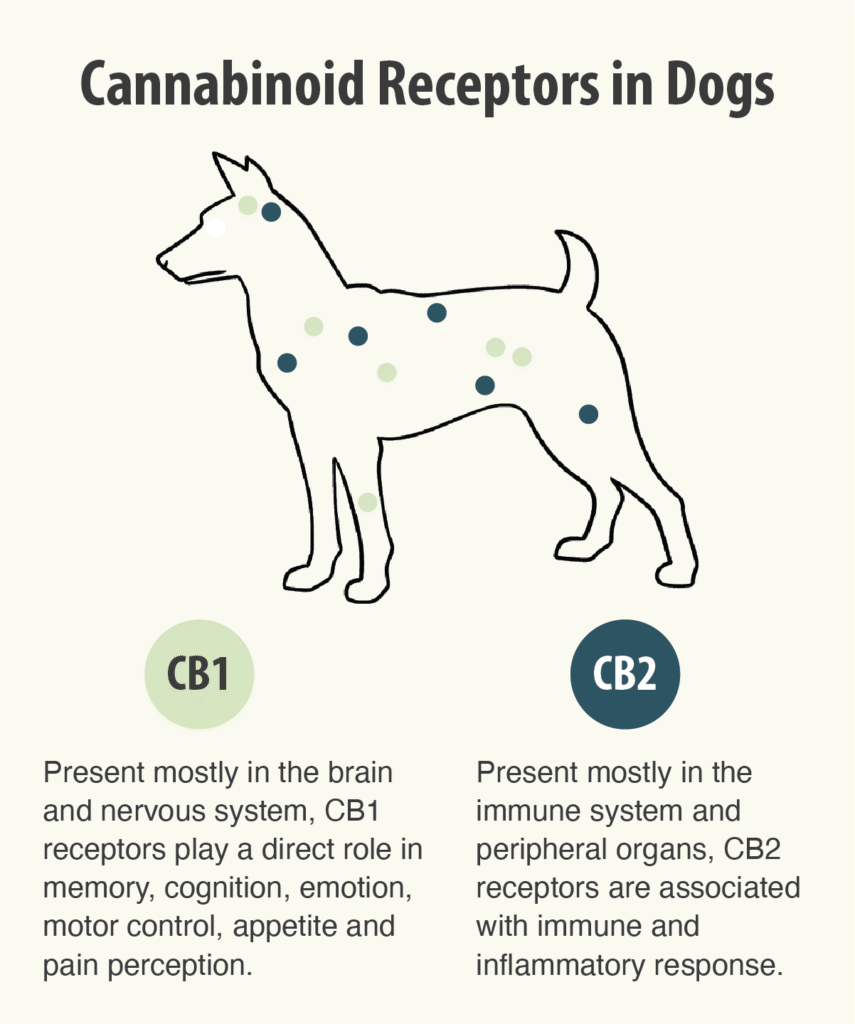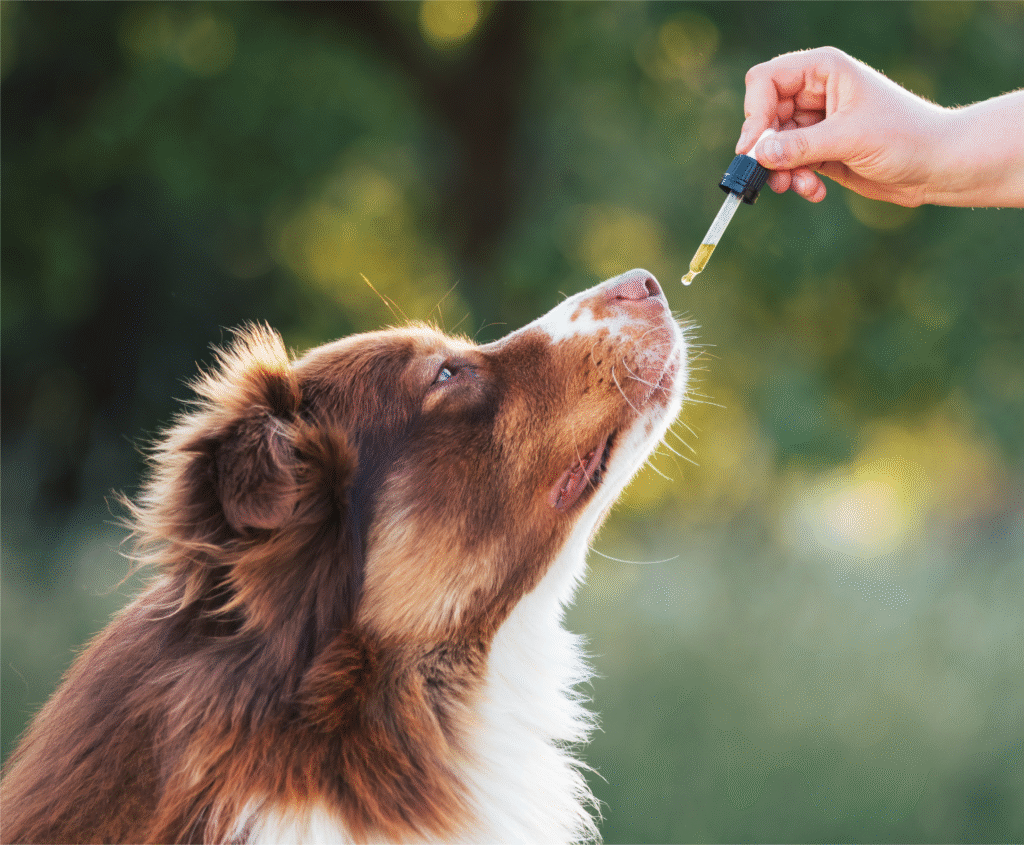Across the U.S., dogs are cherished as true family members—showered with holiday gifts, dressed in adorable outfits, and even celebrated with birthday parties. And just like any loved one, their health and well-being are a top priority. As more pet owners look for natural ways to support their furry companions, CBD is emerging as a promising option for a variety of health concerns.
How does it work?
Just like their human companions, dogs have an endocannabinoid system that is responsible for maintaining overall balance and health. This system is comprised of cannabinoid receptors (CB1 and CB2) that are located throughout the body. CBD and other cannabinoids interact with these receptors, impacting a range of functions including mood, sleep, inflammation, pain and more. Dogs have a higher concentration of CB1 receptors in the brain compared to humans, meaning cannabinoids may more strongly affect their coordination, balance, and mood.

4 Potential Benefits of CBD for Dogs
Dog owners are turning to CBD for a variety of health concerns. Here are four common reasons:
- Anxiety and Stress: Dogs have a high concentration of CB1 receptors in areas of the brain that control fear, mood, and stress. By influencing these receptors, CBD may calm the nervous system and reduce an overactive stress response, resulting in less stress-related licking, chewing, pacing, barking, panting or whining. This is beneficial for dogs experiencing situational stress — during thunderstorms, fireworks, vet visits, grooming appointments, car rides, separation, etc. — or general nervousness.
- Pain, Inflammation and Mobility: Many types of pain in dogs (like arthritis, joint stiffness, or injury) are linked to inflammation. CBD interacts with CB2 receptors in immune cells, helping to calm the inflammatory response, which can ease pain at its source. By easing inflammation and discomfort, CBD may help dogs move more easily and with less stiffness, especially seniors with arthritis. Additionally, CBD may reduce how strongly pain signals are processed and perceived by influencing CB1 receptors in the brain and spinal cord.
- Appetite: By influencing CB1 receptors in the brain and digestive system, CBD may help normalize appetite signals — supporting dogs that aren’t eating well due to stress, illness, or aging.
- Skin Health: Many skin issues in dogs (like allergies, dermatitis, or chronic itching) are linked to an overactive immune system. CBD can help balance the immune response, potentially reducing the intensity of allergic skin flare-ups. Additionally, by helping to manage stress and promote a sense of calm, CBD may help with stress-related skin issues such as scratching, licking or chewing.
Dosing Guidance
While every dog’s “right” dose will be different, it is typically recommended to give 1 mg CBD per 5 pounds. For adult dogs, start with the lowest dose, monitor closely, and increase gradually if needed. See below for a reference guide.

Consult a veterinarian before giving CBD to a dog to find out if it is right for their individual needs and for more personalized dosing information.
Choosing a CBD Product
Since dogs can’t tell us how they are feeling, it is especially important to choose a reputable CBD brand with high-quality products. Just like with human CBD products, ensuring that a product is third-party lab tested is key. Test results will confirm the absence of harmful chemicals, pesticides and contaminants, as well as verify label potency claims. Choosing a full or broad spectrum hemp extract is also recommended. In contrast to CBD isolates, these all-encompassing extracts offer CBD plus a wide range of nutrients naturally found in the hemp plant. This is thought to provide a more comprehensive nutritional effect, yielding greater benefits.

Dogs across the U.S. are more than pets — they’re family, and keeping them happy and healthy is always a top priority. From calmer moments to easier movements, CBD is a natural way to help our furry friends feel their best every day.

